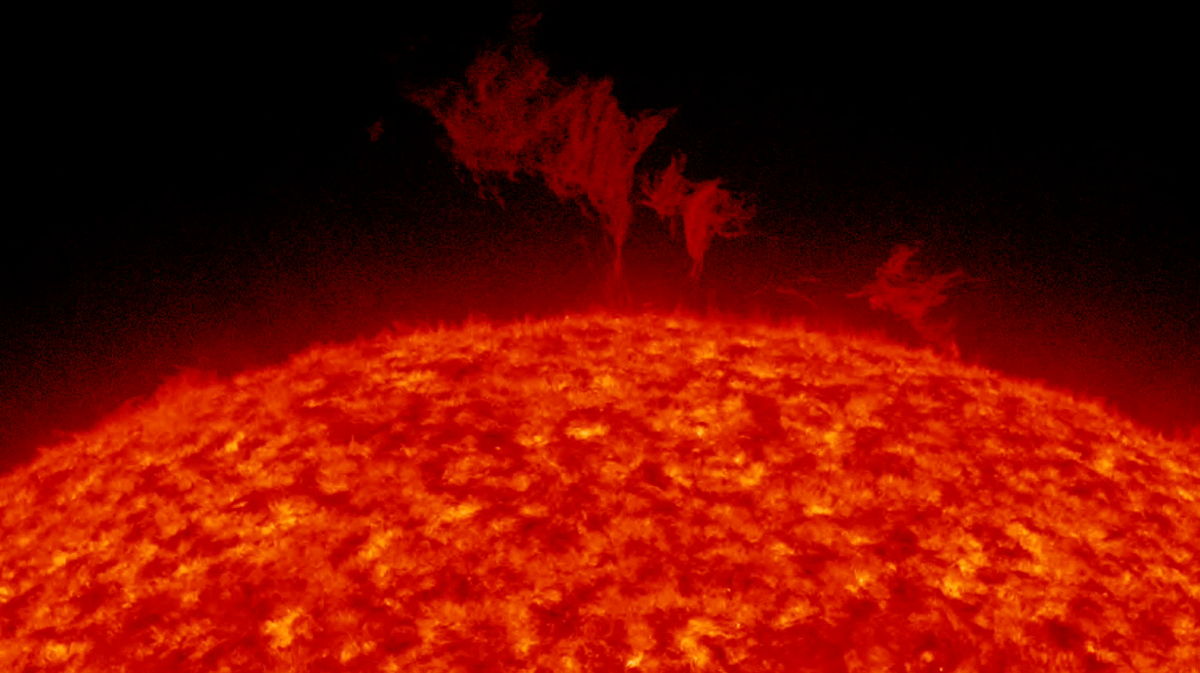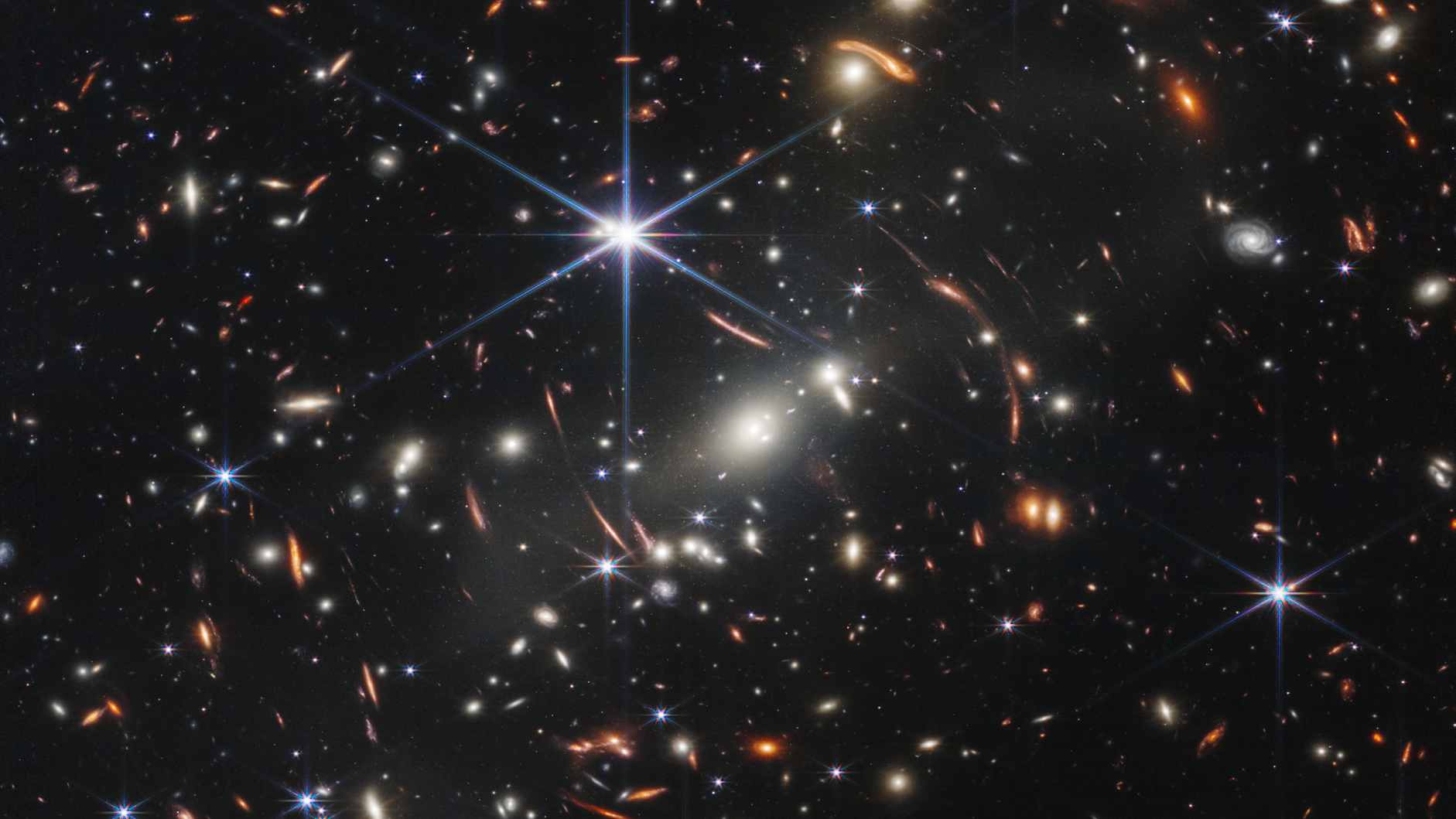Russian Proton rocket launches two communications satellites to space
A reported 'deficiency' in the upper stage forced a nearly week-long delay in the successful launch.
A Russian Proton rocket overcame a one-week delay to launch two communications satellites into space Monday (Dec. 13).
The Express-AMU3 and Express-AMU7 spacecraft flew to space from the Baikonur Cosmodrome in Kazakhstan at 7:07 a.m. EST (1207 GMT or 5:07 p.m. local time). Russian space agency Roscosmos reported launch success and said the upper stage rocket, Briz-M, would place the satellites into their target orbit across five more burns.
"All stages of the flight (separation of the stages and payload fairing jettison) went nominally," Roscosmos reported in a statement. A video of the launch showed clouds brushing by the rocket as it made a nighttime climb into the sky.
The Proton-M rocket was initially supposed to launch Dec. 6, but the launch was delayed several days due to the need to address a "deficiency" in the Briz-M booster, state media TASS reported earlier in December.
Related: Russia's Space Centers and Launch Sites in Pictures

Assisted by Briz-M, the two satellites will transition to an altitude between 11,600 miles and 32,800 miles (between 18,700 km and 52,800 km) to eventually move into geosynchronous orbit, at 22,236 miles (35,786 kilometers). Geosynchronous orbit will allow a relatively fixed position over Russia as the Earth rotates.
The satellite pair is meant to serve the Russian Federation's communications and broadcasting needs, including "fixed and mobile communications, television and radio broadcasting services, broadband high-speed access to information resources and other applications," Roscosmos stated of the launch.
Get the Space.com Newsletter
Breaking space news, the latest updates on rocket launches, skywatching events and more!
The last Express launch, which also sent two satellites aloft successfully, took place in July 2020. The first of the satellite series was launched in October 1994 to replace an older set of satellites known as Gorizont, then in use since 1979, according to RussianSpaceWeb.com.
Follow Elizabeth Howell on Twitter @howellspace. Follow us on Twitter @Spacedotcom or on Facebook.
Join our Space Forums to keep talking space on the latest missions, night sky and more! And if you have a news tip, correction or comment, let us know at: community@space.com.

Elizabeth Howell (she/her), Ph.D., was a staff writer in the spaceflight channel between 2022 and 2024 specializing in Canadian space news. She was contributing writer for Space.com for 10 years from 2012 to 2024. Elizabeth's reporting includes multiple exclusives with the White House, leading world coverage about a lost-and-found space tomato on the International Space Station, witnessing five human spaceflight launches on two continents, flying parabolic, working inside a spacesuit, and participating in a simulated Mars mission. Her latest book, "Why Am I Taller?" (ECW Press, 2022) is co-written with astronaut Dave Williams.









